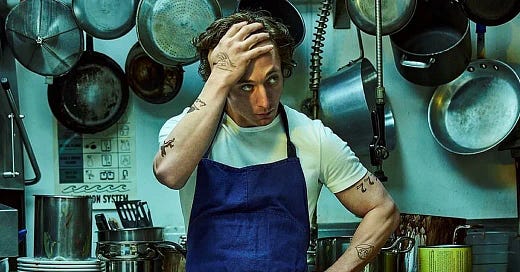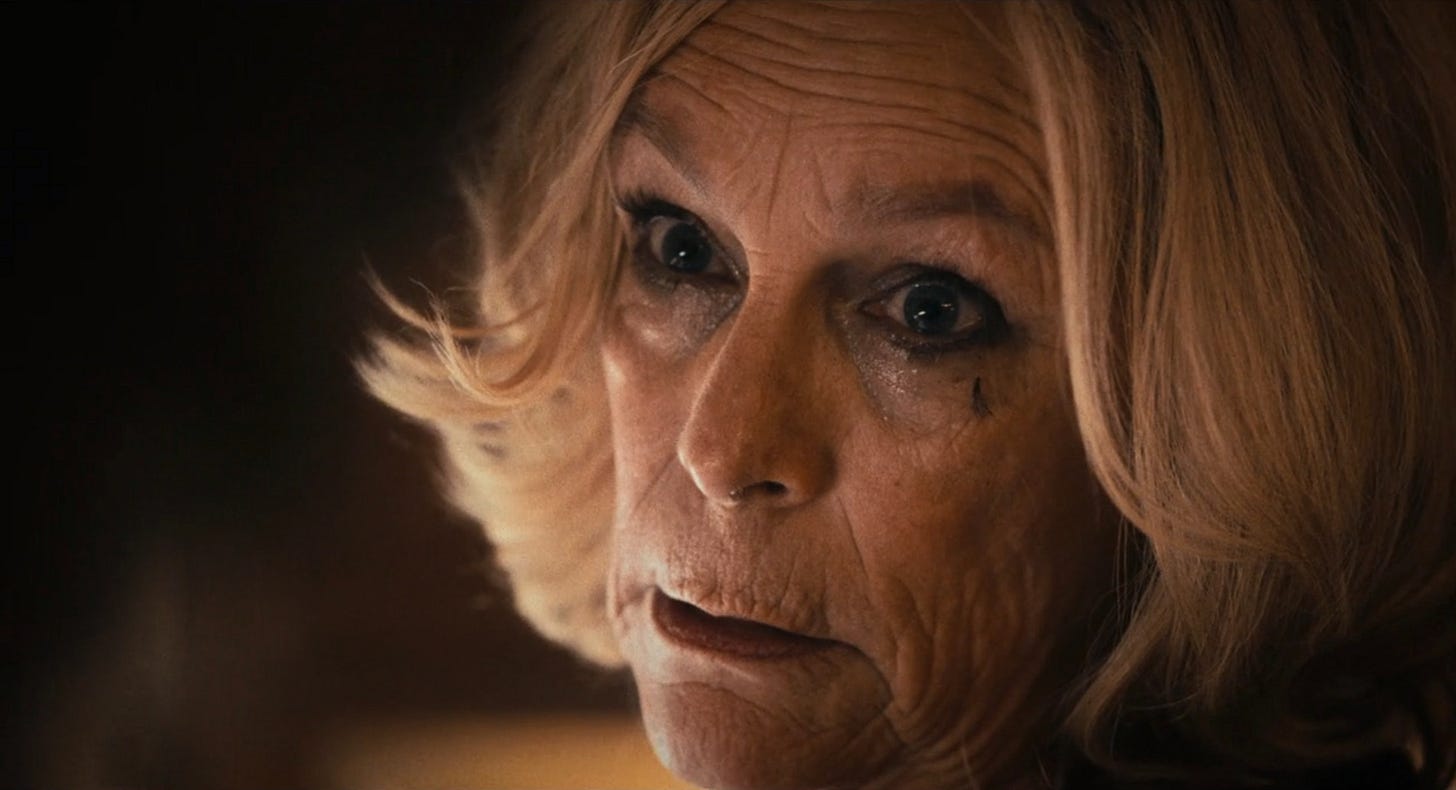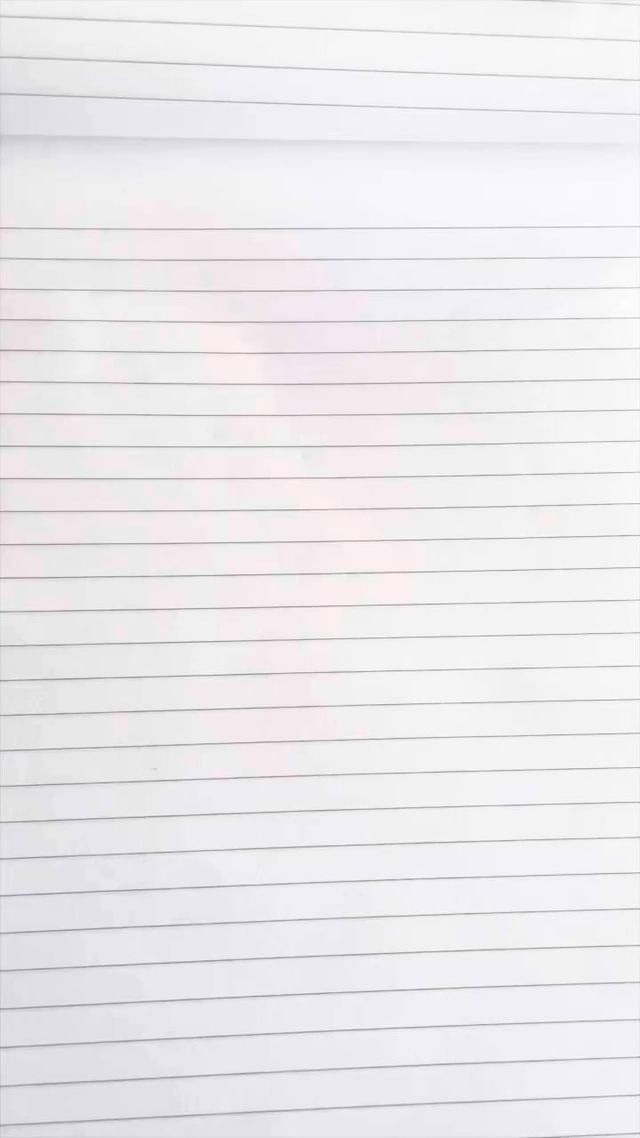Imagination can be active or passive. Active imagination is the bit kids are good at, the bit artists and scientists are good at. It’s the bit we give each other awards for. It’s the summoning up of things that were not there. By contrast passive imagination goes largely unnoticed. No one gives themselves credit for being able to comprehend drawn perspective. No one applauds you for seeing movement in a zoetrope. It’s almost passé to see an image of a child in a war zone and want to reach in and pull them clear. We disregard our ability to inhabit the imaginary spaces our world confronts us with but the ability to believe in the things we know are not real is a complex skill.
TV and movies are spectacularly layered provocations to our passive imaginations. We are given a succession of flat images and sound and create for ourselves depth, motion and emotion. I think one of the most extraordinary examples of this is MasterChef, the mother lode of foodie TV. Ever since Kuleshov we’ve known about the mind’s ability to read hunger into the juxtaposition of images of food and faces but over the years MasterChef has turned this into a fine emotive science. Instead of seeing the reality of John and Greg, the mouths of a nation, prodding away at plate after plate of tepid dinners, long lingered under studio lighting, our passive imaginations taste hot food. We may not be experts in vocal performance but our ears have at least really heard the singing of the contestants in music shows. We can still really see which dancers stumbled on Strictly. Reality TV cookery is enjoyed as an act of pure imagination.
I first got fixated on MasterChef when my Dad was dying. At that point the best thing about it was just the sheer volume. It ate up hour after hour of our concentration. Dad got laudanum, we got MasterChef. By this point my Mum had already long since given up eating. As ever with my most complicated parent it’s hard to untangle the strands. Botched surgery on her gallbladder had affected her digestive system but previous to that her culinary life was coloured by big ideological punishments. Her cookbook, a scrap book of recipe ideas, charts her progress from 1970’s eating on a budget, into the self-sufficiency that saw her turn the garden into a vegetable plot before reaching an environmental and ethical position of vegetarianism. Looking back it’s hard not to see all of this as the ghost of her depression, as very good excuses for her to punish herself. Whatever the causes, by the time we became avid adherents to the church of MasterChef her diet consisted mainly of plain white rice with yogurt and tuna fish, usually sprinkled with granules of lecithin to help her digest it. “Well Linda,” says John Torrode staring out the television at us “Your rice is nicely cooked, the tuna fish has a salty bite of the sea but this yo-gurt, for me that’s just part of a different dish.”
When the stars aligned she was actually a very good cook. When she wasn’t imposing stress into the process, she had a natural instinct towards harmony and simplicity. She was also often ahead of the curve, cooking in the 80s and 90s with a passion for local often home grown organic food in a way that wouldn’t be considered normal for decades. She cooked with love. A common phrase that also requires a great act of passive imagination to make sense. How do you add an abstract noun to a bowl of carrot and tomato soup? If the love doesn’t affect the flavour why does the soup taste different when it’s lacking?
Food as love. Food as the demand for love. Food as control. When The Bear is good it is very very good. The midpoint of its second season is crowned with the episode Fishes which channels Tennessee Williams through Jamie Lee Curtis’s volatile matriarch, unable not to ruin Christmas. It is a masterpiece and in many ways I wish it could have been a film, longer still and cut from the series surrounding it. The first season was also patchy, had its indulgent corners, but it was powered by a raging uncommunicable grief that made perfect use of Jeremy Allen White’s beautifully inarticulate face. Grief is good drama because it drags us into the struggle against change. Bravely though the second season attempts to move on, attempts to show its characters growing, learning. Learning on screen is another story that requires our passive imagination. The training montage is film grammar for “they got better at this, fill in the blanks yourself”. The Bear’s version of this is an inspirational speech from an English actor. A regular cast member goes to another restaurant, a powerful actor in a great cameo role gives them homely advice about hard work and it’s like we’ve seen them do lots of hard work, right?
Late in the series, a high powered front of house team hear a visitor mention her regret at not having found time to get real deep dish pizza whilst visiting Chicago. To learn the team’s focus on service, one of our heroes, Richie, has to race across town to pick up an authentic deep dish take out, a slice of which will become a surprise addition to the diner’s menu. Cringey but cute, until the team of chefs proceed to cut it into rings and dick it about with tweezers and micro ‘erbs, as if that is anything anyone would actually want them to do. Real deep dish isn’t cut into rounds and arranged with gloved fingers, it slides from the oven like the wobbling erotic mess that it is. You don’t make something gourmet by fussing with it.
The Bear, like MasterChef, is obsessed with Noma, both with good reason. Founder of the Danish überestaurant René Redzepi built his fame through the elevation of humble things, of foraged leaves and traditional dishes. What better metaphor for a reality TV show that seeks to make home cooks into acclaimed restauranteurs? The Bear too has a version of this principle running through its DNA. It’s a show about increasingly fancy food but fancy food cooked by everyday people. The second season regularly lacks drama or even plot and by doing so it kind of elevates the mundane bureaucracy of running a small business into Emmy award winning TV. Except, having eschewed inner turmoil, pain or tension, most of the second season of The Bear plays not as bold celebration of the everyday but more as homage to ‘90s comfort TV, as if that was the same thing. It wants to be ordinary but doesn’t know how. You can scatter it with micro herbs and drizzle it with a balsamic reduction, but it’s still Dawson’s Creek.
The short life of America is a history of self-imposed punishments. The destruction of American taste by the American food industry is a cultural crime, not least for the way it speaks to the industrialisation of normal lives - American food is designed for people who are working too many jobs to cook. But this is the food on which the 1950’s golden age was built, this is the food that seemed to end the Great Depression and got everyone fed. For understandable reasons, Americans struggle to see the difference between what is humble and what is trash.
That it’s hard to comprehend the difference between simple food and fast food speaks to why we’re watching them head to an election between two old men who are both proud to eat like children. That eating trash makes Trump and Biden both look honest reminds me of the other key thing about passive imagination - we use it when allowing ourselves to be fooled.
I’ll be holding my seminar HOW TO HAVE AN IDEA on the 29th of February. Intended as a taster of my 9 week writing course, this session looks at what makes an idea become a story and explores ways of creating more of both. Book your place here.
Almost impossibly this is a real episode from Lloyd Grossman’s original MasterChef featuring three actual real humans from the 90s even though they all seem like ridiculous caricatures from an Alan Partridge spin-off. Also who signed off the bizarre slo-mo egg title sequence?






